
by Dr. Jacqueline S. Allen | Sep 21, 2022 | Blog, Dental Implants, Dentistry, Phoenix Endodontic Group
If you have a failing tooth (or teeth), you may be wondering if a dental implant might be a workable solution for you. Implants take the place of your natural teeth. They are anchored to your jawbone, and topped with an artificial tooth. Dental implants have a similar success rate to root canals, when performed by a dentist or endodontist with significant experience doing them. They are not, however, the ideal solution for every patient.
Let’s take a look at some factors to consider before getting a dental implant.
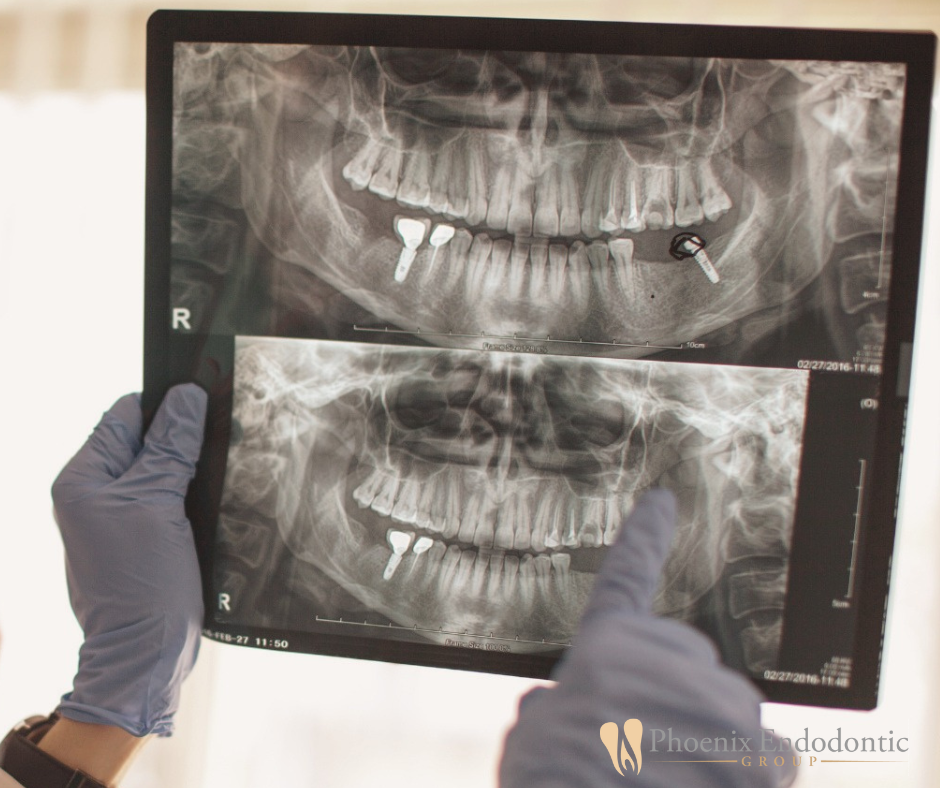
What Important Factors Should I Consider Before Getting A Dental Implant?
-
Are there less invasive options that could save the tooth? In some cases, a tooth that is threatened by infection, decay, or advanced gum disease may be able to be saved. Root canal treatment and periodontal (gum) procedures may be solid alternatives; your dental provider will be able to discuss their potential to help you.
-
Have I discussed my health conditions with my provider? The endodontist or implantologist who performs your dental implant will conduct a thorough examination, and take images of your teeth. They will also ask about your medical history. You should discuss any serious conditions such as diabetes or cardiovascular disease. You should also let your provider know if you’re a heavy smoker or if you’ve had radiation therapy to your head or neck.
-
Will I need additional procedures to prepare for my dental implant? Depending on your individual circumstances, you may need a sinus lift, tooth extraction or removal of parts of your damaged tooth, bone augmentation, gum treatment, or other procedures to prepare for your dental implant. Your provider can explain the need for each procedure and how it fits in your treatment timeline.
-
Will I have to commit to multiple appointments over a number of months to complete the dental implant process? Depending on the approach that your provider recommends, you may need to come to a number of appointments to plan, prepare for, and undergo all the procedures that complete your dental implant. Discuss any scheduling constraints with your dental professional and their staff.
“To ensure that a dental implant is the right approach to improve your oral health, our staff will discuss all relevant factors impacting the process before treatment begins,” says Dr. Jacqueline S. Allen, who practices with the Phoenix Endodontic Group. “This ensures your treatment team has all the information needed to provide excellent treatment. It also gives peace of mind that you are making the right choice.”

by Dr. Jacqueline S. Allen | Feb 22, 2022 | Blog, Dental Implants, Dentistry
When you are missing or have failing natural teeth, you may wonder if your only option is to live with this condition. You could get dentures, but maybe you worry they won’t be compatible with your lifestyle, or take too much effort.
Dental implants are the other common solution to natural tooth loss. They are not for everyone, but different types of implants exist for different treatment challenges. Here’s a quick guide to three common types of dental implants, plus one more also gaining popularity.
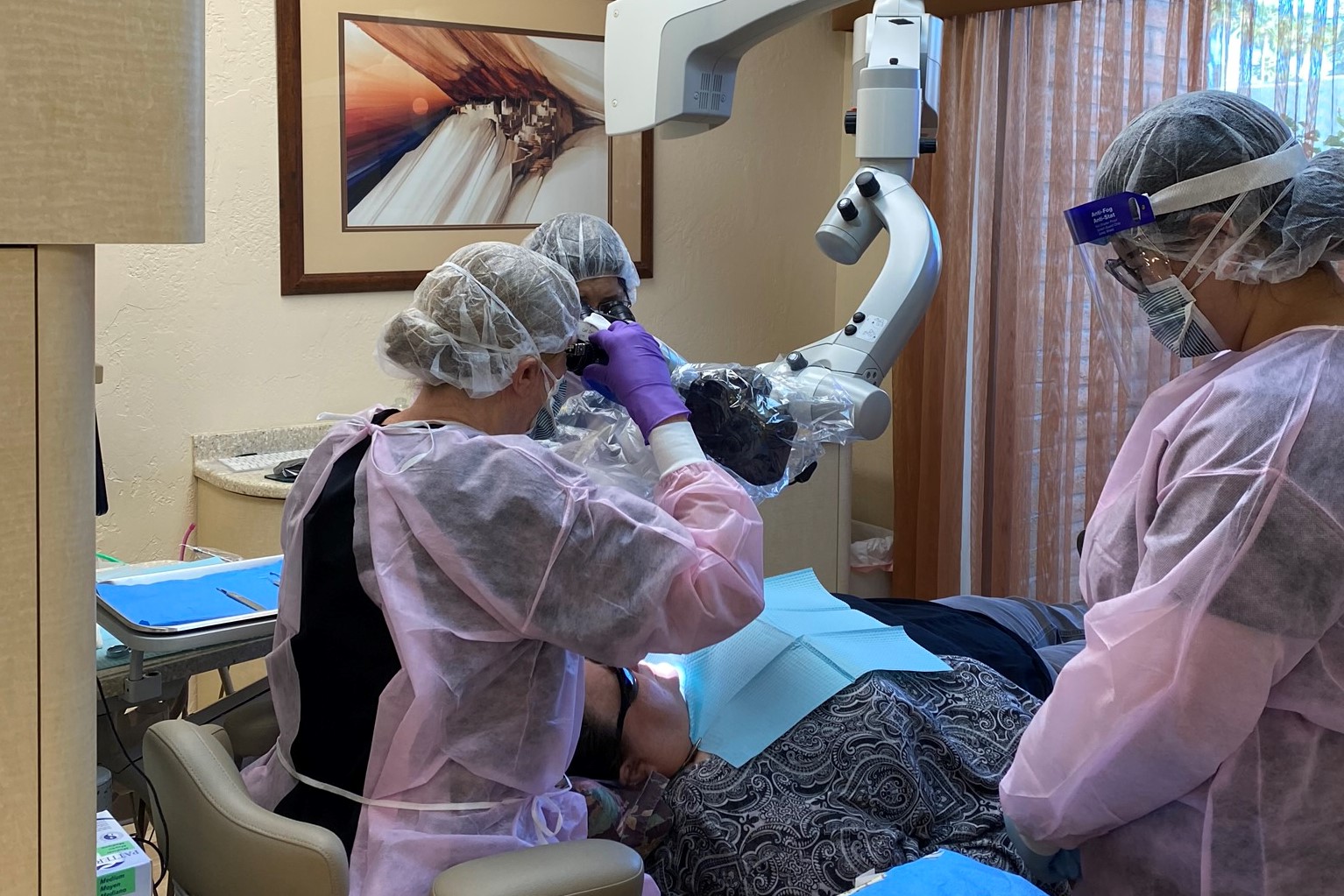 Understanding The Three Types Of Dental Implants
Understanding The Three Types Of Dental Implants
Endosteal Implants – These are the most commonly used dental implants, one of two types recommended by the American Academy of Implant Dentistry. A titanium cylinder (screw) or blade is placed in the jawbone, in the socket of the missing tooth. Endosteal dental implants take four to six weeks to heal, while the implant bonds to the bone through a process called osseointegration. After the healing is complete, an abutment is placed where the new tooth is placed securely on top of it.
Subperiosteal Implants – These implants are an alternative for patients who are not good candidates for the endosteal dental implant procedure. Instead of being placed directly into the jawbone, they are placed between your jawbone and your gum tissue. They can work well for patients who don’t want to use bone augmentation to strengthen their jawbone, or whose jaw simply won’t support the surgery for endosteal dental implants.
All-On-4® – For patients missing an entire arch (upper or lower) of teeth, this implant approach provides a cost-effective alternative to replacing each tooth individually.
During an All-on-4® dental implant procedure, four angled titanium implants are placed in your mouth for each arch of missing natural teeth. You may be provided a special set of abutments and temporary overdentures if your dental provider has elected to do a “teeth in a day” approach. You will eat a modified diet for up to six months while osseointegration is taking place. Once that process is complete, you’ll receive a permanent set of overdentures and can return to eating all the foods you love.
Another new type of popular dental implant is called the Mini-Dental Implant (MDI). An MDI is primarily used to stabilize a lower denture. It is about the width of a toothpick and consists of a socket, ball, and a rubber ring on the end. This type of implant is less invasive, requires less healing time, and generally lasts for many years, depending on the hygiene regimen and other factors for individual candidates for this procedure.
“Dental professionals who provide dental implants have a number of options to fit a variety of patient treatment scenarios,” says Dr. Jacqueline S. Allen, who practices with the Phoenix Endodontic Group. “Our practice is happy to discuss which type of dental implant holds the greatest chance of providing a permanent solution for your natural tooth loss.”

by Dr. Jacqueline S. Allen | Dec 20, 2021 | Blog, Dental Implants, Phoenix Endodontic Group
Are you one of millions of Americans facing tooth loss? Many people today lose a tooth (or teeth) to decay, accident, or injury. Many more are lost due to periodontal disease (gum disease), which affects nearly 50% of Americans over age 30 and nearly 70% of those over age 65. Dental implants can offer a long-lasting, comfortable, realistic-appearing tooth substitute for one or more natural teeth. Here are some important points to consider when weighing whether dental implants are a solution of choice for you.
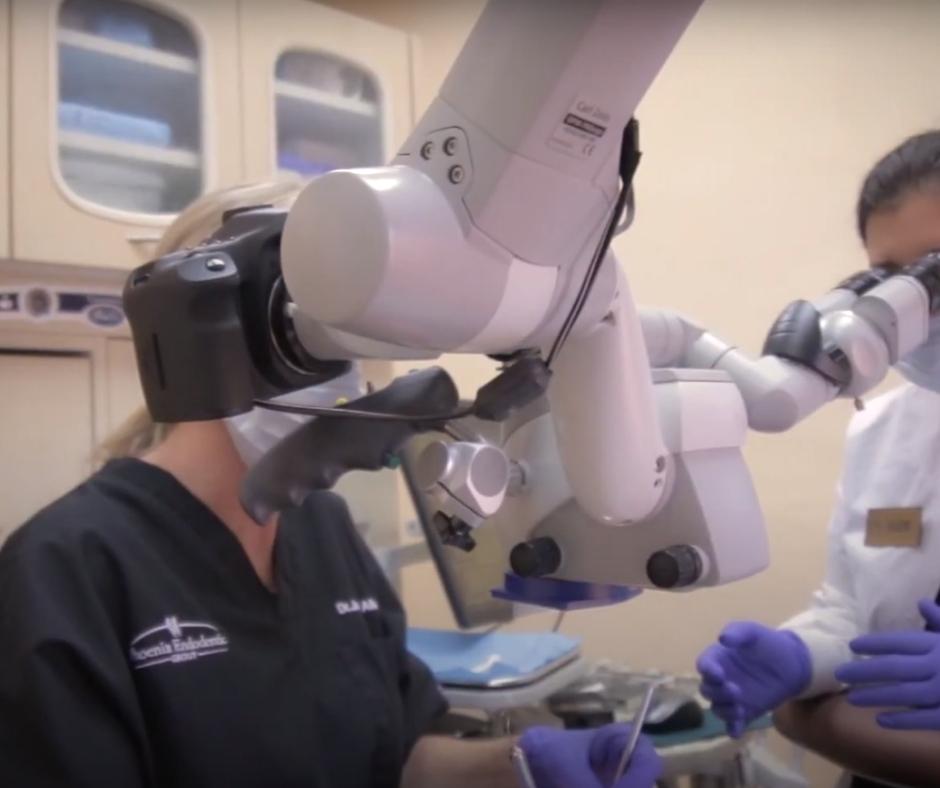
What Are The Advantages Of A Dental Implant?
- There’s no further damage caused to remaining teeth. Bridges and partial dentures both work by using remaining natural teeth as anchor points. Over time, this perpetual stress weakens the anchor teeth, which can lead painfully to further tooth loss and replacement.
- Dental implants are in place for good, permanently. Partial or full dentures must be removed and cleaned daily with a special solution. Poorly-fitted dentures can slip, making eating and talking awkward and embarrassing. Dental implants, with proper care, can be expected to last 20 years, comfortably, non-slip!
- Dental implants help fight bone loss. When you lose teeth, loss of bone in the jaw follows not long behind. Dental implants bond with the jawbone, helping to preserve and prolong its integrity, which in turn helps your jawbone maintain the natural contour of your face. Neither bridges nor dentures combat bone loss in the jaw, essentially allowing your face to inevitably develop that “caved-in” look.
- Dental implants provide a realistic-looking replacement for missing or severely damaged teeth, allowing you to recover your ability to move confidently through life with a beautiful, natural smile.
Dental implants are not automatically the best choice for everyone. Some patients, for example, may need bone grafting to make dental implants an option. Other patients, especially those needing replacement of entire arches of teeth, may be put off by cost, although technology is making dental implants more affordable every day.
Your dentist or endodontist can help you determine whether dental implants might be right for you. If you have severely damaged or missing teeth, “Call us now,” encourages Dr. Jacqueline S. Allen of the Phoenix Endodontic Group. “Make it a holiday gift to yourself to come in and see how we can help restore your smile with dental implants!”
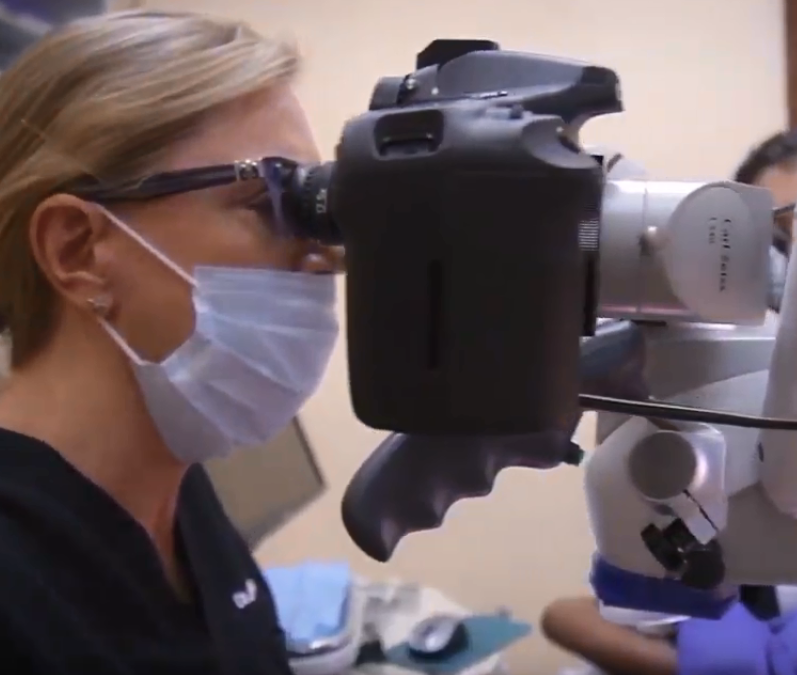
by Dr. Jacqueline S. Allen | Aug 23, 2021 | Blog, Dental Implants, Phoenix Endodontic Group
Nothing can replace an in-depth conversation with your dental provider if you want to clearly understand your oral health. At no time is this more true than when you’ve been told you have failing natural teeth and might want to consider dental implants.
We’ve compiled a list of questions that will help guide your conversation with your dentist and help you understand the why, how, and what of dental implant procedures.
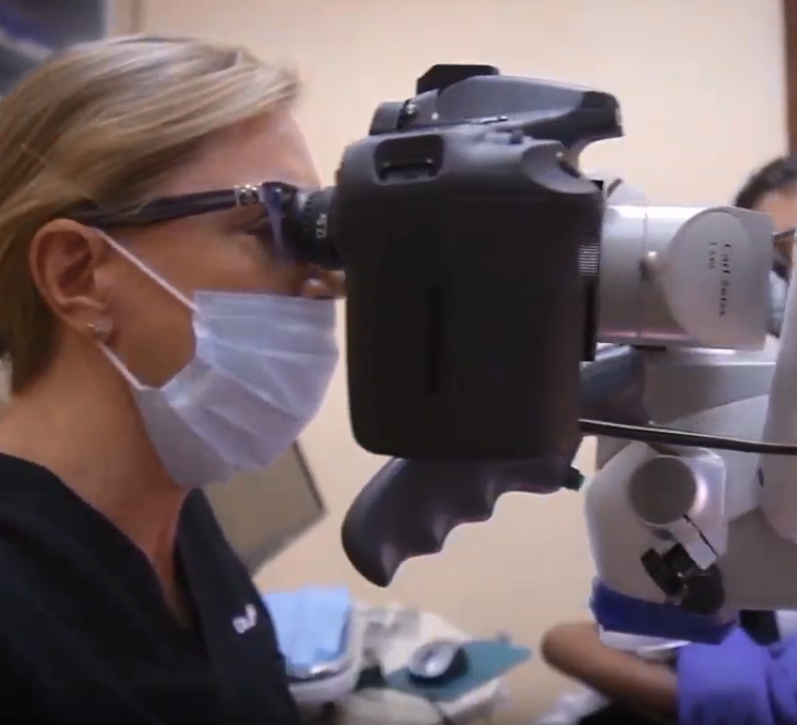 Top Dental Implant Questions
Top Dental Implant Questions
- Does this mean my natural tooth (teeth) can’t be saved? Yes. Otherwise, you’d probably be talking with your endodontist about a root canal or other procedure aimed at saving the tooth.
- How many teeth will be replaced by the implants? Dentists can replace a single tooth, a number of teeth, or an entire set of teeth with dental implants.
- How much is this going to hurt? The implant procedure itself is usually pain-free, thanks to general or local anesthesia. Factors that can influence how much pain you feel afterwards include: having teeth extracted prior to your implant procedure; how closely you follow post-operative instructions on taking painkillers and antibiotics; how well you avoid foods that might aggravate the treated area; and if you follow good oral hygiene while the affected area is healing.
- How many visits to my dentist will this take? Typically, you can count on at least two visits to complete the dental implant procedure. The first visit is to remove any failing natural teeth and embed the implant in your jaw. A second visit is necessary to add a dental restoration (which resembles a crown and functions like your natural tooth) or to replace a temporary restoration, if you received a same-day implant (see below). You may also need a separate appointment to have a bone augmentation procedure in order to increase the chances of your dental implant being successful in the long term.
- How soon can I eat with my new teeth? All dental implants require a healing period, during which the metal implant integrates into the jaw. Some patients must eat with their remaining natural teeth, if they have any. Other patients are candidates for what is known as same-day implants or “teeth in a day,” a procedure in which the dental implants are placed in the jaw and a set of temporary overdentures are placed on top of them on the same day. In either case, during this time you’ll need to eat soft, non-irritating foods to ensure the implants integrate successfully.
- What care do my dental implants require? There are two key steps to promote long life for your implants. First, daily care is a must. Brush all your teeth twice a day and floss them daily. Second, get regular dental check-ups. Check-ups are especially critical for patients with implants.
“Dental implants are an excellent choice for many patients, but we find the most success when patients understand why they are receiving implants and what it takes to care for them,” says Dr. Jacqueline S. Allen of the Phoenix Endodontic Group.
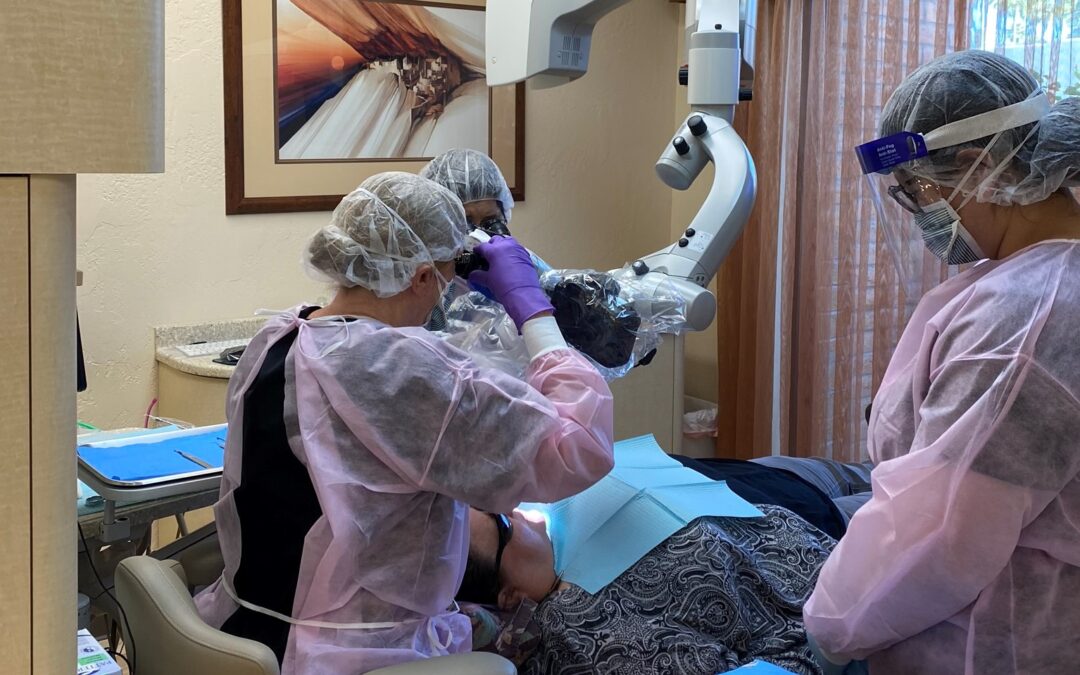
by Dr. Jacqueline S. Allen | Mar 23, 2021 | Blog, Dental Implants, Phoenix Endodontic Group
Dental implants can change your life dramatically. If you were missing teeth before, you now will be able to chew, speak, and smile with a new sense of confidence. However, while dental implants can be successful up to 98 percent of the time, success depends on taking care of your implants. Dental implant care isn’t complicated, but it does help to know how best to protect your implants. Here’s a brief overview of practices to keep your dental implants working for a lifetime.

A Basic Guide To Dental Implant Care
- Start off right by following post-operative instructions. Regardless of whether you receive a single implanted tooth or an entire arch, it is important after the procedure to rest, take antibiotics if prescribed, avoid acidic or hard-to-chew foods for a few days, and use a soft-bristled toothbrush to gently clean your new implants.
- Brush your dental implant twice a day with low-abrasive toothpaste. If you already brush twice a day, great! It is important to use toothpaste that is NOT designed to “scour” your teeth, though, because it will damage the surface of the implant. Your implanted teeth can also become discolored by highly abrasive toothpastes.
- Floss your implanted teeth at least once a day – but use the right tools. It’s especially important to clean the spaces between your teeth if some or all of them are dental implants. The dental floss you use should not shred or leave particles behind when you’re done; this can contribute to the development of peri-implantitis. Soft picks and interdental brushes can be good choices, as can water flossing.
- Ask about using a mouth guard if you grind your teeth. A properly fitted mouthguard can protect against bruxism (nighttime teeth grinding). The guard can protect your dental implant from pressure that can cause damage to the implant itself or create spaces between your teeth that can trap food and other debris.
- Continue to visit your dentist on a regular basis. Just as when you had a full set of natural teeth, it is important to receive preventive care from your dentist. This is true no matter how many of your teeth are implants. At office visits, your provider can ensure your implants are functioning properly, check the health of your gums, and advise if any part of your dental implant needs replacement.
“Receiving a dental implant is just the beginning of a transformational process for patients who have been living with damaged or missing natural teeth,” says Dr. Jacqueline S. Allen, who practices with the Phoenix Endodontic Group. “You can keep the transformation moving forward by taking good care of your implants. Our practice can advise patients concerning all aspects of implant care.”
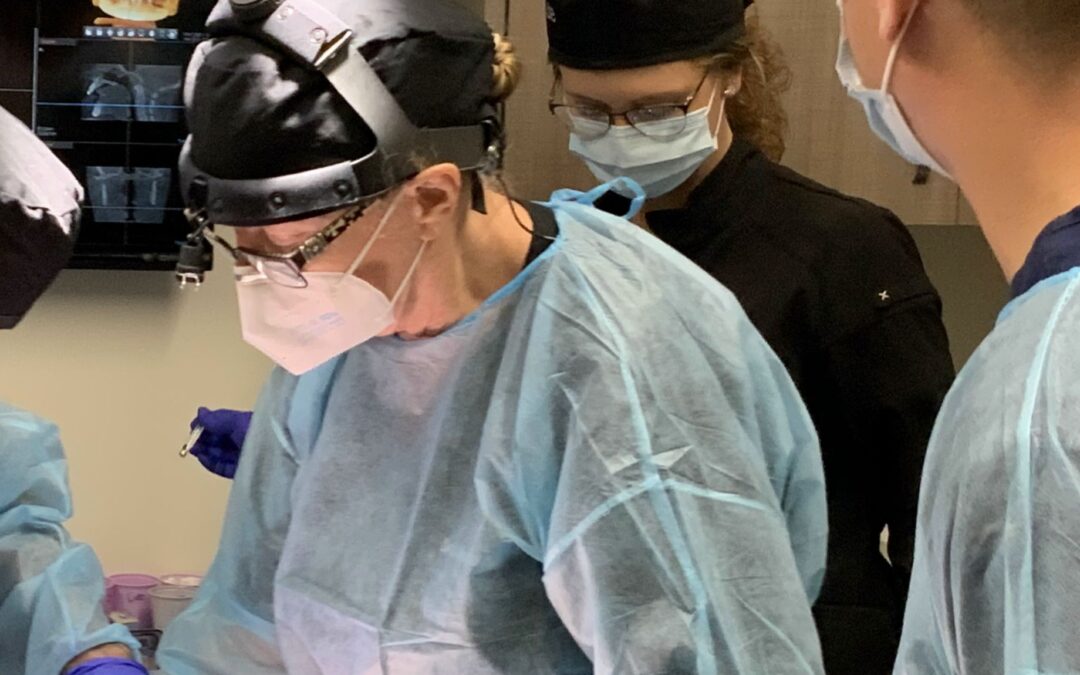
by Dr. Jacqueline S. Allen | Jan 21, 2021 | Blog, Dental Implants, Phoenix Endodontic Group
When a natural tooth cannot be saved, one effective option is to have it replaced with a dental implant. Whether installed as an individual implant, though, or as part of an entire arch of replacement teeth, implants have a significant cost associated with them. Many dental insurance plans do not cover implant costs, although many dentists have financing options available. It’s important to weigh the benefits dental implants offer, to assess whether they are the right investment for you.
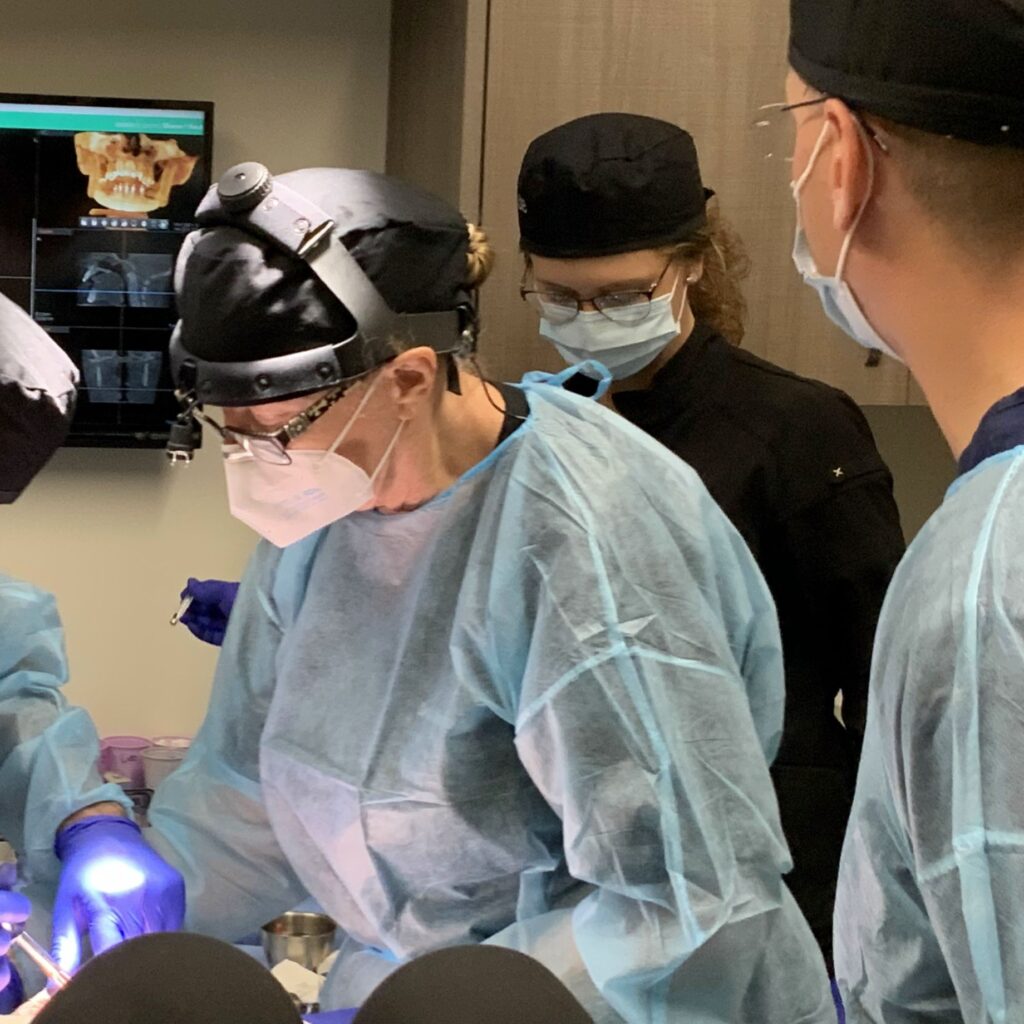
Reasons Dental Implants Are Worth It
- Dental implants have high success and satisfaction rates. Studies have found the success rate for dental implants ranges anywhere from 95 percent to 99 percent and that more than 90 percent of patients are happy with the procedure.
- Dental implants allow you to speak and eat normally. If you have lost most or all of your upper or lower arch of teeth, dental implants provide an alternative to dentures. You may feel more comfortable speaking and have an easier time chewing your food because the implants stay fixed in place, like your natural teeth.
- Dental implants can prevent bone loss in your jaw. One of the impacts of losing multiple natural teeth is that your jaw can lose bone density, resulting in “facial sag” in the lower third of the face and causing additional oral health challenges. Some clients need a bone graft to ensure their jaw is strong enough to accept the implant. The implant process requires that the implant integrate into the jawbone, providing needed stimulation and halting the process of bone density loss in many cases.
- Dental implants do not require extra care to maintain. Implants are designed to be durable and last a lifetime. You care for them the same way you care for your natural teeth – by brushing twice a day, flossing daily, and seeing your dentist on a regular basis.
“Dental implants are a cost-effective solution for patients in a number of tooth-loss situations, and it is almost always a permanent solution,” says Dr. Jacqueline S. Allen, a practitioner at the Phoenix Endodontic Group. “Our practice performs a thorough pre-procedure examination and we are happy to discuss the specific benefits you may expect from choosing an implant.”











